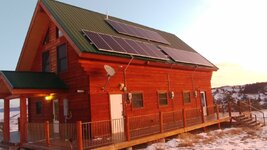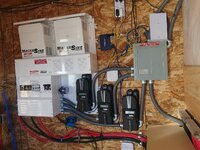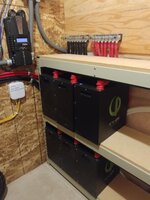timberland
WKR
- Joined
- Apr 8, 2014
- Messages
- 558
going to try to develop a 2000 W electrical system for a cabin. with all the solar components available, I was thinking of starting with a generator feeding a charger/invertor and a battery bank. I don't necessarily need the solar panel support at this time, but may add it in the future. I already have the generator, looking for recommendations on an invertor and battery system.
Any recommendations?
Any recommendations?





